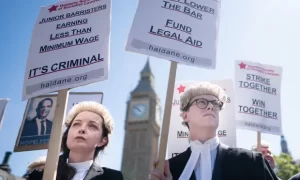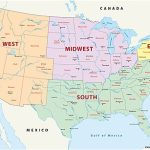
Criminal barristers in England and Wales have voted in favour of an all-out strike next month in a clash with the government over jobs and pay.
Members of the Criminal Bar Association (CBA), who have been stopping work on alternate weeks since June, voted for an uninterrupted strike that would start on 5 September, a spokesperson confirmed.
The start would coincide with the announcement of the new Conservative party leader and prime minister.
Ministers have described the result as an “irresponsible decision”. But the vote will pile further pressure on the government, which faces escalating industrial action in the rail industry and threats of strikes from teachers and health workers.
The Labour leader, Keir Starmer, accused the government of doing “absolutely nothing” to resolve industrial disputes, including the row with criminal barristers.
The ballot of barristers closed at midnight on Sunday and the result was announced on Monday morning. The association said 79.5% of barristers who voted (1,808) supported the move to a full-time strike over legal aid rates, which they said had in effect been cut by 28% over the past decade.
It will result in the vast majority of crown court trials in England and Wales being adjourned while others could collapse entirely.
The CBA vice-chair, Kirsty Brimelow QC, said this was “last-resort action” over a demand for less money than it costs the government for the courts to sit empty.
She told BBC Breakfast: “The effect of the strike will be that the courts continue to sit empty with trials and cases not being heard. It is a last-resort action.
“The remedy is for an injection of money into the backlog of cases, which currently stands at 60,000 cases, that barristers are working on that will cost the government only £1.1m per month. Currently, it’s costing much more for the courts to sit empty.”
The CBA says incomes have fallen nearly 30% over the past two decades and specialist criminal barristers make an average annual income after expenses of £12,200 in the first three years of practice, driving 22% of junior criminal barristers to leave since 2016.
Barristers say they are being paid less than the minimum wage for court hearings when travel and hours spent preparing are factored in – and not at all when hearings are cancelled.
The Ministry of Justice has offered a 15% uplift in fees, which was the minimum increase recommended by the criminal legal aid review (Clar). The CBA said this was insufficient after swingeing cuts and would not apply to the backlog of 58,000 cases in crown courts.
The intermittent strikes began in June and were the first since 2014, which was the first time barristers had gone on strike, over legal aid fees.
According to MoJ figures, more than 6,000 court hearings have been disrupted as a result of the dispute over conditions and government-set fees for legal aid advocacy work.
Data released under freedom of information laws shows that during the first 19 days of industrial action, between 27 June and 5 August, there were 6,235 court cases disrupted, including 1,415 trials, across England and Wales.
Responding to the vote, the justice minister Sarah Dines said: “This is an irresponsible decision that will only see more victims face further delays and distress.
“The escalation of strike action is wholly unjustified considering we are increasing criminal barristers’ fees by 15%, which will see the typical barrister earn around £7,000 more a year.”
Speaking to reporters in east London, Starmer said: “I quite understand, whether it’s barristers or others, why people and how people are struggling to make ends meet.”
He added: “I want to see the government step in and actually help resolve these issues, instead of that we’ve got – a government doing absolutely nothing.”
Read more:
Criminal barristers in England and Wales vote to go on indefinite strike






